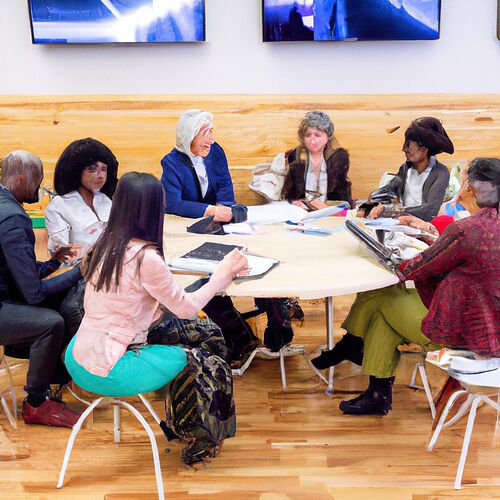Strengthening Decision-Making Skills: Professional Skills Development Strategies
Effective decision-making is a crucial skill in both personal and professional life. The ability to make informed and timely decisions can lead to success and growth in various areas.
However, decision-making can sometimes be challenging, especially when faced with complex situations or high-pressure environments. To overcome these challenges and enhance your decision-making skills, consider the following professional skills development strategies:
- Seeking diverse perspectives: When making decisions, it's important to gather input from different sources. This could include consulting with colleagues, seeking advice from mentors, or conducting research to gather a range of perspectives. By considering diverse viewpoints, you can make more well-rounded and informed decisions.
- Developing critical thinking skills: Critical thinking involves analyzing information, evaluating alternatives, and making logical connections. By honing your critical thinking skills, you can become better equipped to assess situations, identify potential risks and benefits, and make sound decisions based on evidence and reasoning.
- Practicing problem-solving: Decision-making often involves solving problems and finding solutions. By actively engaging in problem-solving exercises and activities, you can sharpen your problem-solving skills and develop a systematic approach to decision-making. This could include brainstorming sessions, case studies, or simulations.
- Considering long-term consequences: When making decisions, it's important to consider the potential long-term consequences. This involves thinking beyond immediate outcomes and considering how your decisions may impact future situations or goals. By taking a forward-thinking approach, you can make decisions that align with your long-term objectives.
- Learning from past experiences: Reflecting on past decisions and their outcomes can provide valuable insights for future decision-making. By analyzing both successful and unsuccessful decisions, you can identify patterns, learn from mistakes, and make more informed choices in the future.
- Building emotional intelligence: Emotional intelligence involves understanding and managing your own emotions, as well as recognizing and empathizing with the emotions of others. By developing emotional intelligence, you can make decisions that consider the impact on individuals and foster positive relationships. This can enhance collaboration and create a supportive decision-making environment.
- Seeking feedback: Feedback from colleagues, mentors, or supervisors can provide valuable insights into your decision-making process. By actively seeking feedback, you can identify areas for improvement, gain different perspectives, and refine your decision-making skills over time.
- Practicing mindfulness: Mindfulness involves being fully present and aware of your thoughts, feelings, and surroundings. By practicing mindfulness techniques, such as meditation or deep breathing exercises, you can enhance your focus and clarity, which can contribute to more effective decision-making.
- Continual learning and self-development: Decision-making skills can be further enhanced through continuous learning and self-development. Stay updated on industry trends, attend workshops or training sessions, and seek opportunities to expand your knowledge and skills. This ongoing commitment to learning can help you stay adaptable and make well-informed decisions.
- Collaborating and seeking input: Decision-making doesn't have to be a solitary process. Collaborating with others and seeking input can lead to more well-rounded decisions. By involving relevant stakeholders, you can tap into their expertise and perspectives, fostering a collaborative decision-making process.
By implementing these professional skills development strategies, you can strengthen your decision-making skills and become more confident in your ability to make informed choices. Remember, decision-making is a skill that can be developed and improved with practice and continuous learning.
For example, let's consider the strategy of seeking diverse perspectives. When faced with a decision, you can reach out to colleagues from different departments or teams to gather their input. By considering various viewpoints, you can gain a deeper understanding of the situation and make a more informed decision.
Overall, investing in the development of your decision-making skills can have a positive impact on your personal and professional growth, as well as contribute to your overall success.
Did I miss anything? Add your comments below!
